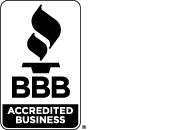Moving for Climate Change? Tips for Remote Workers

How to get ready for your move after you sell your house.
TAGS
Moving for Climate Change? Tips for Remote Workers
Climate change is becoming a more pressing issue every day, and many are considering making the move to a new location in order to be more sustainable. For remote workers, this can be an even more appealing option as they don’t have to worry about finding a job in their new location. Courtesy of The Movers, here are some tips for remote workers who are considering moving because of climate change-related issues.
Research Locations and Their Respective Climates
The first step for anyone considering moving is researching potential locations and their respective climates. This includes learning about average temperatures, humidity levels, and rainfall amounts. Knowing these factors can help you determine if the climate in your new location will be better suited for your needs than the one you’re leaving behind.
Network with Current Residents to Learn About Their Experiences
Once you’ve narrowed down your list of potential locations, it’s time to start networking with current residents in those areas. Ask them questions about their experiences living there so that you can get an idea of what life would be like if you were to make the move yourself. Additionally, ask them about any resources available in the area that could help make your transition smoother.
Analyze the Cost of Living
It’s important to analyze the cost of living in each potential location before making any decisions. Research housing costs, food prices, transportation costs, etc., so that you have an accurate picture of how much money you would need to live comfortably in each place. This will help ensure that you make an informed decision when choosing where to move based on both lifestyle preferences and budget constraints.
Consider Renting
When moving from one place to another, it may not always make sense financially or logistically to buy a home right away. Consider renting instead so that you can take some time getting used to your new environment before committing long-term with a purchase. Additionally, renting gives you flexibility if something unexpected happens or if you decide that the area isn’t right for you after all. You can start searching online for apartments by checking out local listings. This will give you a good idea of what’s available and they cost.
Connect with Other Remote Workers
Connecting with other remote workers who have made a similar move can be a great way to find support and guidance in your transition. They can offer advice on how to stay productive, manage distractions, and maintain work-life balance while working from home. Additionally, networking with other remote workers can help you expand your professional network and potentially lead to new job opportunities.
Considering Starting an LLC Business
Starting your own business can be a great experience; however, every business needs a plan, and a Texas LLC will require specific steps during that plan’s formulation. It can seem daunting to have to draft up a business plan and marketing strategy all by yourself, but once you’ve developed one you’ll be on the path to turning your entrepreneurial dreams into reality. One of Texas’ requirements for startups is that they register their businesses as an LLC (or Limited Liability Corporation). That way, any legal issues that arise are limited to the company itself, rather than encroaching on the personal assets of someone who owns or runs it.
Use Only Natural Cleaning Products In Your Home
Keeping your home spic-and-span can be healthy for our planet too. Natural cleaning products are a cost effective way to do so – not only does it reduce the pollution from synthetic cleaners but also keeps emissions associated with production in check. So, when you’re settling into your new home, be sure to make the switch to natural cleaners and do your part in helping reduce emissions while keeping your home clean.
Making a move due to climate change-related issues is becoming increasingly popular among remote workers today. From researching potential locations and climates, considering renting, connecting with other remote workers who have made similar moves, and considering starting your own business (but remember having a business plan and marketing strategy plus registering as an LLC) – all these points should put anyone interested taking first steps towards relocating due environmental concerns.


